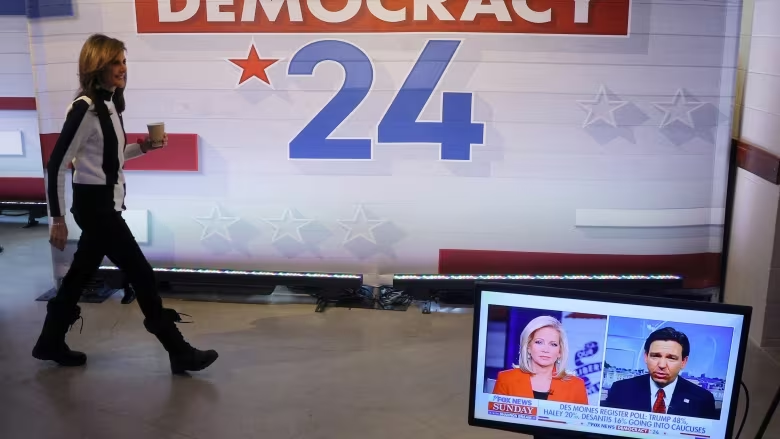
Will it be Nikki Haley or Ron DeSantis? The only uncertainty surrounding Monday's Iowa caucuses is whether either of these candidates could pose a challenge to Donald Trump for the Republican presidential nomination. (Photograph by Brian Snyder/Reuters)
As the United States gears up for the commencement of the months-long presidential selection process, the spotlight is on Iowa for the first Republican nominating contest. The prevailing sentiment is that barring any major polling mishaps, Donald Trump is poised for a decisive victory, solidifying his standing as the front-runner for the Republican presidential nomination. The primary uncertainty lies in determining the identity and strength of the second-place finisher, with the likely contenders being former United Nations ambassador Nikki Haley and Florida Governor Ron DeSantis.
The strategic objective for both Haley and DeSantis is to emerge from Iowa as credible alternatives to Trump as the political race shifts towards New Hampshire, South Carolina, and Super Tuesday. Some view this pursuit as a mere competition for the second spot, as exemplified by a humorous incident where a prankster handed DeSantis a mock participation trophy. Nevertheless, proponents argue that a strong showing in Iowa could propel Haley, especially, to victory in New Hampshire, where polls indicate a tightening race. The dynamics further evolve on Super Tuesday, as several states allow non-Republicans to participate in the voting process.
Amidst the anticipation, Trump's dominance is evident, commanding the support of approximately half of Republicans in early-state polls. Yet, a significant segment of the Republican electorate remains open to alternatives, expressing weariness with the perceived drama associated with Trump. This sentiment is echoed by individuals like Kevin Wax, who, despite acknowledging Trump's accomplishments, desires a leader without the accompanying drama.
The Iowa caucuses, however, face a unique challenge—harsh weather conditions. The brutal cold and snow have led to the cancellation of campaign events, forcing candidates and volunteers to adapt their strategies. This meteorological factor has sparked discussions about its potential impact on Trump, whose fervent supporters are often concentrated in rural areas requiring extra effort to attend caucuses.
Trump has openly acknowledged seeing Haley as a rising challenger, with his campaign resorting to disparaging emails about her. The former president has even falsely suggested her ineligibility based on her birth circumstances. A Des Moines Register poll indicates a potential Haley surge, placing her ahead of DeSantis in second place. However, the softness of her support raises concerns, as a substantial portion comes from Independents and Democrats.
In the final stretch, negative ads targeting Haley, coupled with her policy positions, have fueled skepticism among Republicans. Many express a preference for candidates like DeSantis, seen as more aligned with the party's current inclinations. The outcome of the Iowa caucuses, including the crucial second-place finish, holds significant implications for the trajectory of the Republican nomination race.















